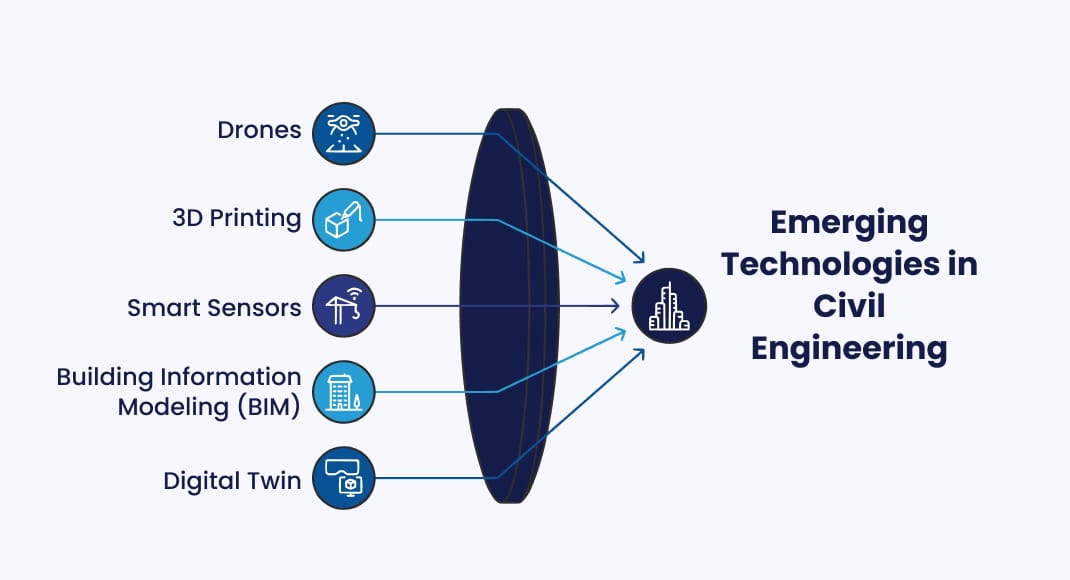The Role of Civil Engineers in Modern Infrastructure Development
Civil engineering encompasses various sub-disciplines such as structural, environmental, transportation, geotechnical engineering and construction management. Each area contributes uniquely to creating and maintaining the infrastructure that forms the backbone of our communities. Without skilled civil engineers, our cities would struggle to function effectively, impacting everything from transportation to public health
Introduction to MIT Academy of Engineering (MIT AOE) as a Hub for Nurturing Future Civil Engineers
At MIT AOE, students pursuing a B.Tech in Civil Engineering gain hands-on experience and theoretical knowledge necessary for excelling in this field. The academy emphasises practical learning through workshops, internships, and projects that align with industry standards. Students are encouraged to innovate and think critically about infrastructure development, preparing them for the evolving landscape of civil engineering.
Civil Engineers in Modern Infrastructure Development
Evolution of Civil Engineering in Infrastructure Development
The field of civil engineering has evolved significantly over the years. Historically focused on basic construction techniques, it now incorporates advanced technologies and sustainable practices. This evolution is driven by the need for resilient infrastructure capable of withstanding environmental challenges such as climate change and urbanisation.
Core Responsibilities of Civil Engineers in Infrastructure Projects
Civil engineers are involved in every stage of infrastructure projects:
- Planning: Conducting feasibility studies and site assessments to determine project viability.
- Design: Developing detailed designs that ensure safety, functionality, and sustainability.
- Construction Supervision: Overseeing construction activities to ensure adherence to design specifications and safety protocols.
- Quality Control & Maintenance: Regularly inspecting infrastructure to manage repairs and ensure durability of infrastructure.
Modern Infrastructure: Challenges and Opportunities
Modern infrastructure faces numerous challenges including funding constraints, regulatory hurdles, and the need for sustainable practices. But these difficulties also offer chances for creativity. Civil engineers can leverage new technologies to create more efficient designs and construction processes.
Emerging Technologies in Civil Engineering

The integration of emerging technologies is reshaping civil engineering:
- Drones: Used for surveying sites quickly and accurately.
- 3D Printing: Allows for rapid prototyping of structures.
- Smart Sensors: Monitor the health of infrastructure in real-time.
- Building Information Modeling (BIM): Enables better planning and visualization through 3D modeling with improved collaboration.
- Digital Twin: Simulation through virtual replica of physical construction environment
These technologies not only enhance efficiency but also improve safety and reduce costs.
Importance of Sustainability in Infrastructure Development
Sustainability is a critical focus in modern infrastructure development. Civil engineers are tasked with designing projects that minimise environmental impact while maximising resource efficiency. This includes utilising renewable materials, implementing energy-efficient systems, and planning for long-term sustainability.
Contributions of Civil Engineers to Society
The contributions of civil engineers extend beyond mere construction; they play a vital role in shaping communities. By developing reliable infrastructure, they facilitate economic growth, improve public safety, and enhance overall quality of life. Their work addresses pressing issues such as urbanisation and climate resilience, ensuring that communities can thrive sustainably.
Preparing Future Civil Engineers for Modern Challenges
Institutions like MIT AOE prepare students to face contemporary challenges in civil engineering through a comprehensive curriculum that blends theory with practical application. Students are encouraged to engage with real-world problems through projects that require innovative solutions. This approach ensures they are well-equipped to enter the workforce as competent professionals.
What are the major career opportunities in modern Civil Engineering?
A B.Tech in Civil Engineering opens doors to diverse career opportunities:
- Structural Engineer: Focus on designing buildings and bridges.
- Environmental Engineer: Work on projects aimed at protecting natural resources.
- Transportation Engineer: Plan and design transportation systems.
- Urban Planner: Create land use plans for urban areas as an urban planner.
- Construction Manager: Take charge of building projects from inception to completion.
Conclusion
Civil engineers play an indispensable role in modern infrastructure development, shaping the environments we live in today. As they navigate challenges related to sustainability and technological advancements, their contributions will be vital for future generations.
OUR RECENT BLOG



